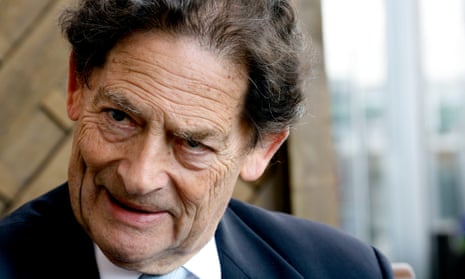Lord Lawson’s lobby group for so-called climate change sceptics launched an attempt to create a fake controversy about the evidence for rising global temperatures as countries negotiate a new international agreement to cut greenhouse gas emissions.
In a press release on Sunday aimed at its cheerleaders in the UK media, the Global Warming Policy Foundation claimed that it was undertaking “a major inquiry into the integrity of the official global surface temperature records”.
It follows allegations by sceptic bloggers that meteorological organisations around the world, including the UK Met Office, have exaggerated the amount of global warming shown in the record of global average surface temperature.
The accusations of data tampering relate to the process of “homogenisation” through which the measurements of some weather stations are corrected to take account of inconsistencies caused by factors such as changes in instrumentation.
However, scientists point out that many of changes due to homogenisation tend to reduce the amount of warming shown in weather station records.
Nasa, the United States National Oceanic and Atmospheric Administration, the Met Office, and a few other organisations around the world compile an independent record of global temperature based on the data from the network of weather stations around the world.
The World Meteorological Organisation monitors how homogenisation is applied to correct the global temperature record.
The move by Lord Lawson’s foundation was widely expected because it casts doubt on the scientific evidence for global warming ahead of the United Nations climate change summit in Paris at the end of this year.
In the runup to the UN climate change summit in Copenhagen in 2009, sceptics spread misleading accounts about the contents of emails that had been illegally hacked from the Climatic Research Unit at the University of East Anglia.
Lawson officially launched his foundation just a few days after sceptics started to disseminate the hacked emails, and cited concerns about the global temperature record in an article published in the Times to publicise his new organisation.
Among the false accusations made against the University of East Anglia was a claim scientists had distorted the record of global average temperature.
Several independent inquiries concluded that there had been no malpractice, although the scientists were criticised for the way they responded to an aggressive campaign by sceptics to undermine their professional reputations.
This is just the latest attempt by climate change sceptics to damage confidence in the global temperature record, which shows about 0.85C of warming since the start of the late 19th century, according to the latest report by the Intergovernmental Panel on Climate Change (IPCC).
In 2011 sceptics welcomed the Berkeley Earth Science Temperature project, partly funded by the Charles Koch’s foundation, because it promised to address “the five major concerns that global warming sceptics had identified” in the temperature record.
A prominent ‘sceptic’ blogger, Anthony Watts, declared: “I’m prepared to accept whatever result they produce, even if it proves my premise wrong”.
However, when the Berkeley project produced similar results to the Met Office and other meteorological organisations, Watts and other ‘sceptics’ rejected the findings.
The foundation review is being chaired by Professor Terence Kealey, the former vice-chancellor of the University of Buckingham, which has numerous links with climate change sceptics.
Kealey is joined by a number of scientists who have expressed doubt about the consensus on climate change, including Richard McNider of the University of Alabama.
McNider co-authored an article in the Wall Street Journal in February which attacked climate models, and criticised the scientific consensus on climate change because it “imperils economic growth and warps government policy making”.
The foundation has not indicated how its project on the global temperature record will be funded.
The foundation tries to keep the identities of its donors a closely guarded secret, although Lawson has admitted that many are his wealthy friends. Journalists and campaigners have uncovered that many of the donors have links to rightwing lobby groups, such as the Institute of Economic Affairs.
The foundation’s accounts show that more than 95% of the £1.86m it has raised since its establishment have come from its secret donors.
Although most of its expenditure has been on its four staff, it spent more than £50,000 on producing pamphlets and other literature in the year ending September 2014.
Following a lengthy investigation, the Charity Commission last year concluded (pdf) that the foundation had broken the terms of its registration as an educational charity because it promoted a fixed position on climate change on its website and through its publications.
Lawson subsequently launched a lobbying arm, the Global Warming Policy Forum, which will not be bound by charity regulations.
However, the foundation continues to promote climate change denial, in apparent breach of the Charity Commission’s rules.
